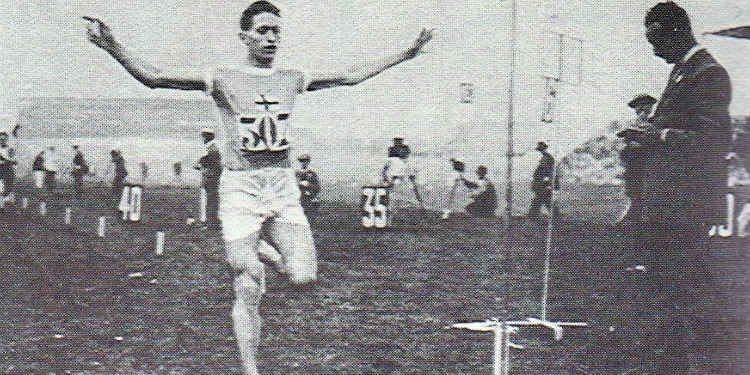Forgotten Olympic Champion’s Legacy Races On in Israel
The Fellowship | September 27, 2019

Not many people remember the obscure Finnish Olympic champion of the 1920s, Elias Katz. Even fewer realize he’s an Israeli we should all know. That will change thanks to this story by The Times of Israel’s Shaul Adar, who tells us how Katz won gold for Finland, then made aliyah (immigrated to the Holy Land), where he fell victim to a terror attack before witnessing Israel win her independence:
Runner Elias Katz may well be the most anonymous Finnish champion in Olympic history. He is certainly the most anonymous Israeli Olympic champion.
Katz was killed in a terrorist attack in 1947 and his name is thus listed on the monument for the victims of hostilities on Mount Herzl in Jerusalem. But there is little else to remind Israelis of his achievements. Katz may not have lived to witness the inception of the State of Israel, but, according to Finnish historian Rony Smolar, he made an enormous contribution to Israeli sports in the last years of the British Mandate in Palestine, repealed on May 15, 1948.
Born in Turku, Finland, in 1901, Katz was the son of a Jewish soldier in the Tsar’s army. Like many other Russian Jews, his father was deployed in Finland and after a military service spanning some 20 years, he was allowed to remain in the then-Russian autonomy…
The early 1920s saw Katz make strides with Nurmi’s help and following the 1923 Olympic tryouts, he won a spot on the Finnish team.
In the 1924 Paris Olympics, Katz won the preliminary 3,000 meters’ event with a time of 9:43.8 minutes – the best time of the qualifying heat. He was in the top group coming into the finals, but with two laps to go he suffered a fall and slipped to the fifth place, only to make a phenomenal recovery and finish second, stopping the clock at 9:44.0 – 10.5 seconds after Ritola, who won five Olympic gold medals during his career.
The two partnered with Nurmi and won the gold medal in the 3,000 meters’ team event. Katz, who dashed through his first competitive run in long trousers, thus became an Olympic champion…
Katz, who upon immigrating changed his name from Elias to Eliyahu, had hoped to continue working as a coach in pre-1948 Israel, but was not paid for his work and expertise and struggled to earn a living. He eventually found employment as a guard and a maintenance man at the Maccabiah Stadium (which would later become Tel Aviv’s famous Bloomfield Stadium), as well as a construction worker and a film projector for the British Army.
In his spare time, Katz coached athletes at the Maccabi Association and was scheduled to train Israeli athletes ahead of their first appearance at the 1948 London Olympics. But Israel, founded only two months before the games were set to start, was denied its chance to participate in them over a last-minute ruling by the International Olympic Committee.
The six-member Israeli team had registered for the games earlier in 1948 as the team from “Mandatory Palestine,” but by the time the games rolled by on July 29, that entity no longer existed. Wary of an Arab boycott, the International Olympic Committee used that technicality to determined that the fledgling Jewish state was not eligible to participate in the games and refused to budge on the issue.
On December 24, 1947, Katz was showing a film at a British Army camp in Rehovot. Later that evening, he was murdered by two Arabs, becoming the city’s first fatality in the War of Independence.
“Eliyahu Katz is guaranteed a place in the history of Jewish sports,” the papers read the following day. “His memory will not be forgotten and he will become a symbol for our sporting youth…”
